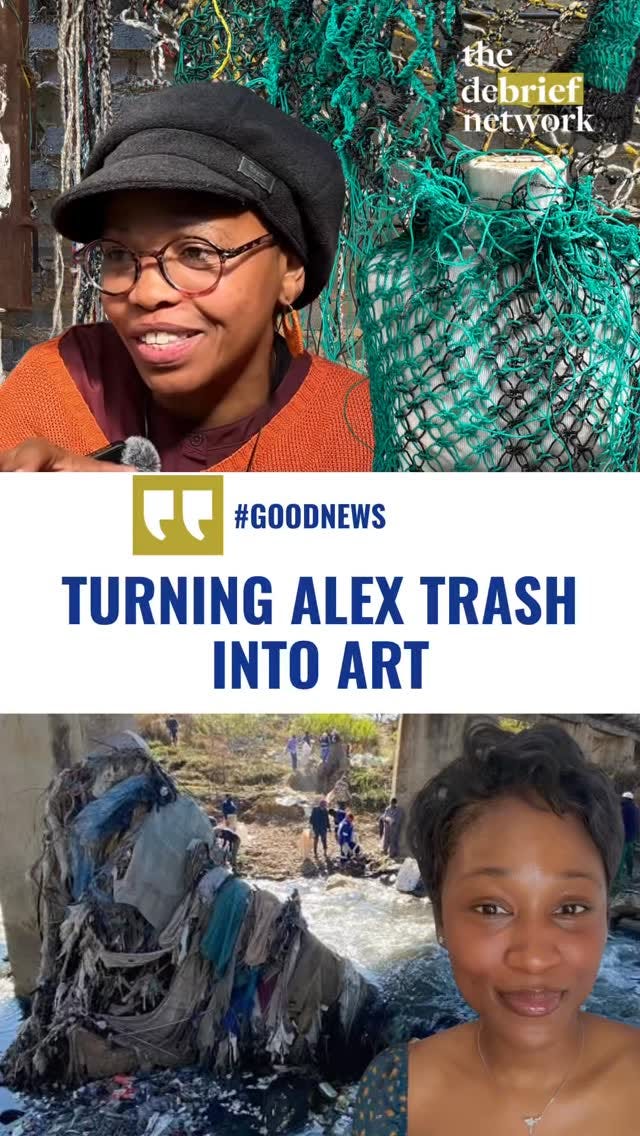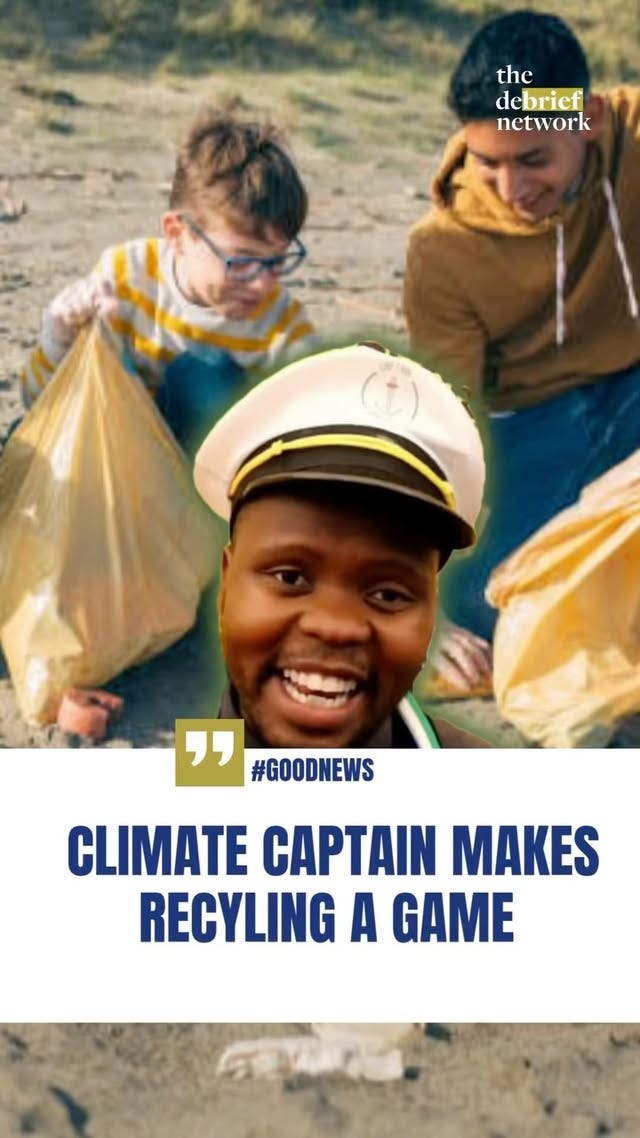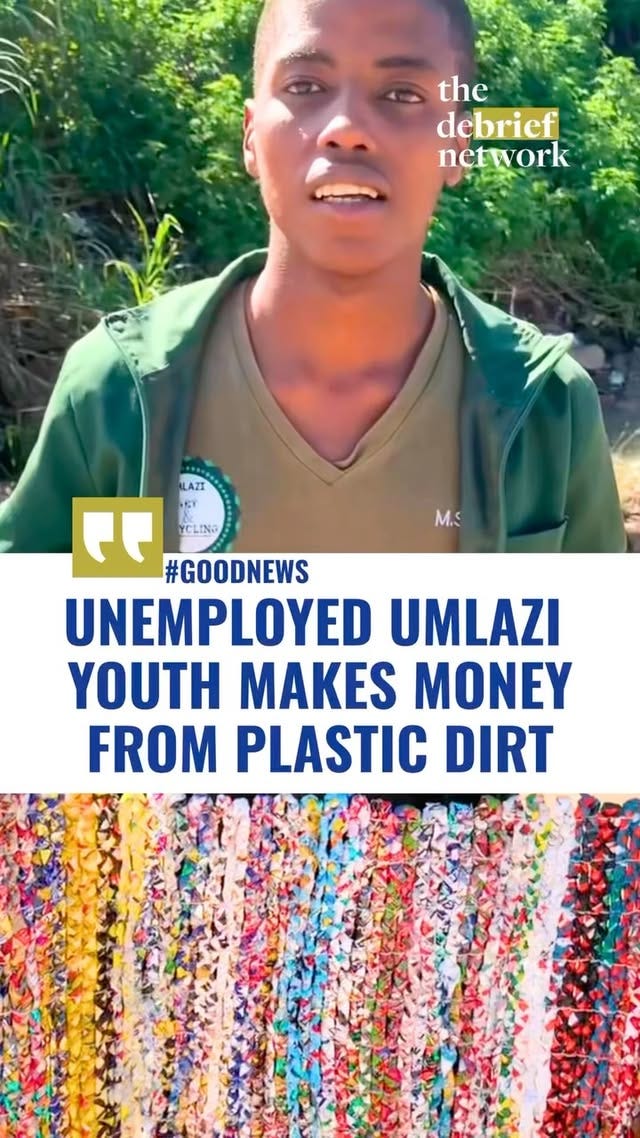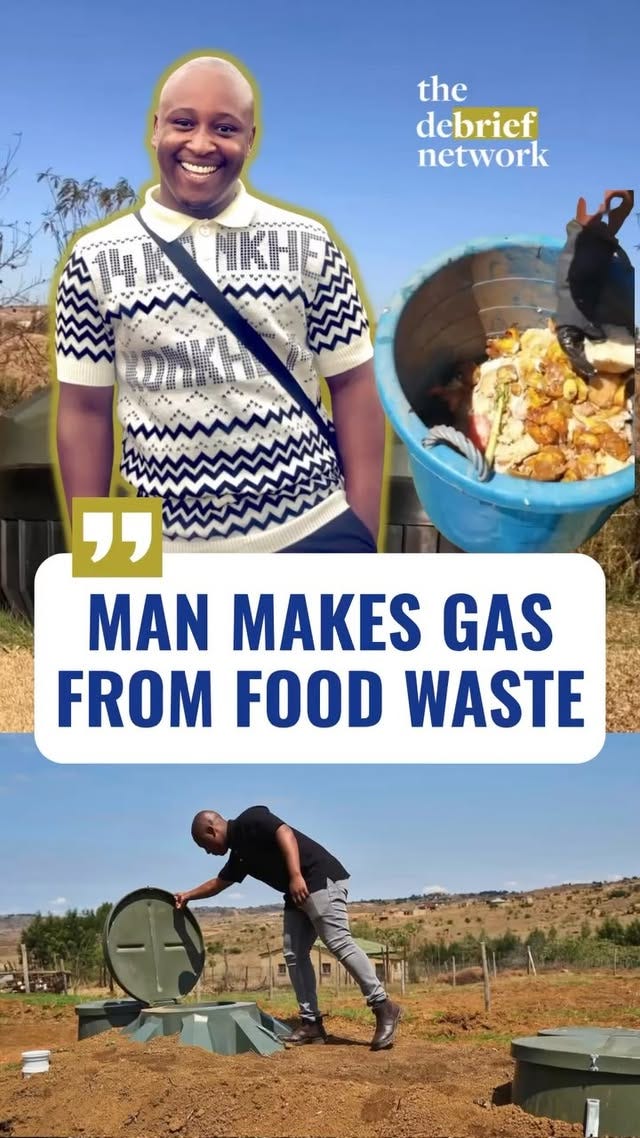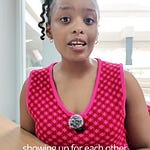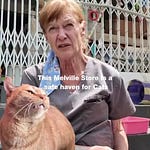Thato Marolen, Yanga Deya and Minenhla Semelame don’t know each other.
They live in different places, work in different ways, and carry different dreams.
Yet, without recognition or reward, they are united by a common mission: making our world a little better.
When we talk about climate change, it’s easy to feel overwhelmed.
For those who care, it feels like you’re up against the inevitable.
For those who don’t, it’s easier to look away. But one truth is unavoidable: climate change hits the poor the hardest. (Read this sobering report from the UN)
In places like Umlazi and Alexandra township, a polluted environment isn’t just an eyesore, it is a public health crisis, a barrier to opportunity, and a theft of dignity.
That’s why we went around the country to find ordinary people doing extraordinary things. These changemakers deserve to be famous.
Produced by Malaika Ditabo
In Alexandra township, Thato Marolen and her team are taking on litter in ways that combine environmental activism with creativity and survival.
Their project began with “litter traps” to clean local rivers. But it quickly became more than that.
“We were upcycling, weren’t we? Whatever we get from the river, we would actually use,” Marolen explains.
For them, the fight against climate change is also about jobs, dignity, and art.
“It’s something you can look after and make money from. Employ people. Manufacture anything with your hands because everything you need is right there.”
For Marolen, this is about pride. Pride in Alexandra, pride in history, pride in showing the world that sustainability can be rooted in culture and community.
Produced by Hasina Gori
In classrooms across South Africa, children are meeting a pirate captain. His mission is to make recycling cool and it seems to be working.
Captain Fanplastic is an initiative blending storytelling, gamification, and environmental education.
Its partnership manager, Yanga Deya, says their goal is to turn children into “positive pirates” who learn to refuse, reuse, reduce, repurpose, and recycle.
“By using stories and games, we transform pupils into climate champions,” Deya explains.
With South Africa generating 2.5 million tons of plastic waste each year, their work couldn’t be more urgent. Their audacious dream: to reach one million learners globally by 2030.
Behind the fun and costumes lies a serious message—children are not just future leaders, they are active players in the climate fight right now.
Produced by Zakiyya Hatia
In Umlazi, Minenhla Semelane is turning thrash into art and making money doing it. uMlazi Arts and Recycling is dedicated to turning trash into treasure by collecting plastic waste from schools, tuckshops, community - which could land up into rivers and ocean. He weaves mats from the waste plastic and sells it to people in ihs community.
“After five years of being unemployed, as a person who've got a passion and the love for the environment, I started to figure out more what can I do for myself to survive. I posted my work on Facebook which went viral,” he told us.
Semeland says that globally only 13% of plastic waste is being recycled.
“Every year, humans produce more than 2 billion tons of waste, nearly 3 hundred million tons of waste is plastic – and half of this is single use. And this much lands up into landfills and ocean. Millions of mammals, animals, die per year due to plastic we consume as human beings,” he reminded us.
Produced by Zakiyya Hatia
Thabo Mngomezulu, the founder of Kasi Gas, is showing exactly how that is possible. He collects food waste from local restaurants and schools with feeding schemes and gives it a second life. Once shredded, the waste is fed into a biodigester where, in the absence of oxygen, natural bacteria break it down and produce biogas. This gas burns cleaner, safer, and more affordably than traditional fuels, making it a vital energy source for rural communities.
But the innovation does not stop there. The process also produces a nutrient-rich organic fertilizer that helps revive dead soil and supports local food production. Through his vision and dedication, Thabo is creating a cycle of sustainability that powers stoves, restores land, and brings hope to his community.
From Alexandra’s riverbanks to Umlazi’s backyards, from pirate-themed classrooms to township art studios, sustainability is not simply an abstract debate.
It’s about cleaner neighbourhoods, healthier children, and new ways of living with dignity.
Editor’s note: At The Debrief Network, we believe these stories matter. It is easier to find people who break but we are on a mission to find people who build. Help us share the important work we do by following us on social media and sharing our work. If you want to support independent journalism further, let us know!



